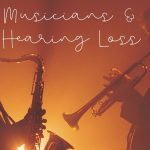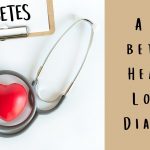Many people are aware of the major risks involved with smoking cigarettes and drinking alcohol. The Centers for Disease Control (CDC) provides a wealth of information about the effects of smoking on and in the body. Smoking can lead to respiratory disease, damage the small air sacs in your lungs, and can also exacerbate asthma. It can also cause cancer to almost anywhere in the body: colon, cervix, liver, stomach, pancreas, and lung to name a few.
The CDC also provides statistics related to excessive alcohol use and the chronic diseases and other serious health related problems associated with it. Some comorbidities include: cancers of the breast, mouth, throat, esophagus, liver, and colon; trouble with memory and learning; depression and anxiety; and social problems with family and unemployment.
But how is that connected to hearing loss?
When considering the harm that smoking cigarettes and/or drinking alcohol can cause, you may not think about how it could affect your hearing ability. In fact, a study of 3,000 participants showed that smokers are almost 70 percent more likely to suffer hearing loss compared to their non-smoking counterparts. This study, published in Journal of the American Medical Association, June 1998, also found that hearing impairment often increased with the number of cigarettes smoked.
Difficulty hearing can increase in relation to exposure to cigarette smoke in most cases. People who smoke are generally 1.69 times more likely to damage their hearing and heavy smokers are 1.30 time as likely to have a hearing loss across all age groups but the oldest. Smoking called. Hearing loss caused by smoking accounts for 25.9 percent of smokers in the 48-59-year-old age group of the study, compared to 16.1 percent of non-smokers.
Passive smoking was also considered in the study. Non-smokers in living in households with smokers were almost two times more likely to surrey from hearing related problems than people who did not live with smokers.
As for excessive alcohol consumption, it has been found that, over time, it can cause damage to the central auditory cortex of the brain and lead to brain shrinkage, risking nerve damage and hearing loss. A study from researchers at the University of Ulm in Germany tested the BAEP levels (Brainstem Auditory Evoked Potentials) of both social and heavy drinkers by testing the level of damage in the part of the brain responsible for hearing. The results indicated a connection between alcohol consumption and hearing loss.
Damage to the Ear
Researchers believe that drinking can result in brain damage, though the amount of consumption and length of time needed to accomplish this is still being studied. Even though the ears may be collecting sound as usual, the brain is not able to process that sound into information. This is hearing loss as a result of excessive alcohol consumption.
The inner ear may also be at risk. High levels of alcohol in the blood can create a toxic environment which can damage the fragile hairs of the cochlea. Ototoxicity is a condition that can lead to hearing loss.
A British study shows us that alcohol consumption and noise can cause temporary hearing loss separately or in combination. The participants all had temporary hearing loss and researchers believed that continued regular consumption of alcohol could lead to permanent hearing loss in the long term. Low frequency sounds, like those found in speech, were affected most. The study also found that older participants with a history of heavy alcohol consumption were more affected.
Hearing Loss & Your Overall Health
Smoking cigarettes and drinking alcohol are social activities that can also be addictive when used in excess. Along with the widely known effects of smoking cigarettes (lung cancer, respiratory and cardiovascular disease, and more) and excessive alcohol use (liver cancer, depression and anxiety, learning disabilities), the health of your hearing could be at risk. Hearing loss has been shown to be a side effect of each of these activities and the risk can be greater when they are used together.
Make an appointment with an audiologist or board-certified hearing instrument specialist to have your hearing tested and begin caring for your hearing health, with hearing aids if necessary. A hearing health care professional can talk to you about the risks nicotine and alcohol pose to the auditory system so that you might make informed decisions about your overall health.






